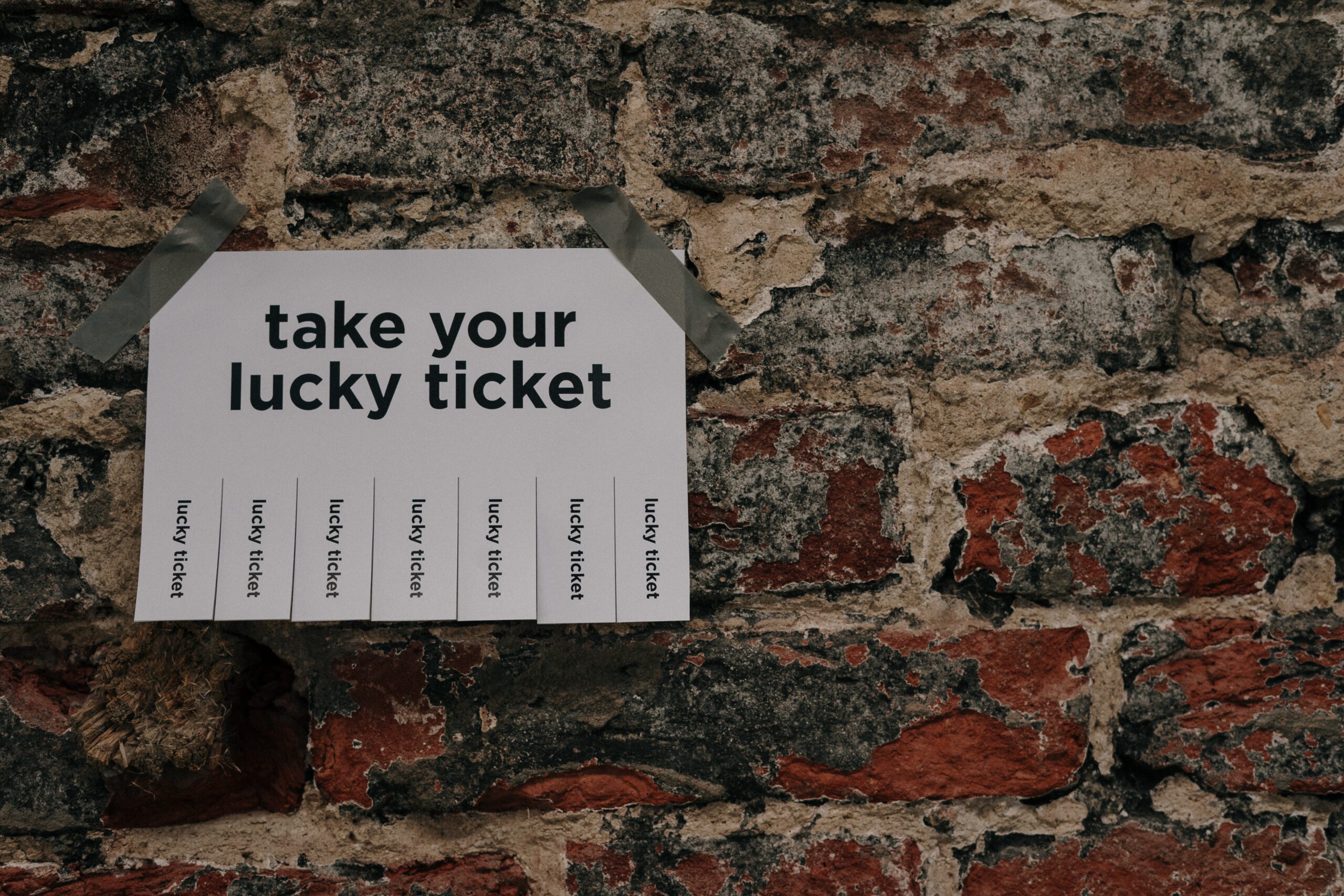August 18th, 2022. Tom Rowlands
Is A House Raffle A Sensible Business Decision?

Have you ever considered selling your property in a ‘house raffle’? Have you ever even heard of one? Whilst the name itself offers a self-explanatory idea of what it is, we thought we’d dive into the subject and give you our take on if they’re a good idea.
From the frustration of having your house sat on the market for months and the grim reality of losing out on your dream home, to first-time buyers looking for that bricks-and-mortar lottery jackpot, more and more people are looking to a property raffle as an alternative.
Are the days of relying on an estate agent to sell your house gone? With other options becoming available, does the relatively unknown house raffling make sense from a business perspective, for both the buyer and seller?
Houses for raffle, you say?
Much like the standard raffle you’re probably used to, a housing one works much the same. You purchase one or more raffle tickets to be in for a chance to win a house – sounds good, right? Tickets can go from as little as £5 each, and once all sold, the property seller picks the lucky winner.
The winner will typically have stamp duty fees included in the prize. For capital gains tax, this is based on the current market value from the date the property is attained, meaning if you won the raffle and sold your current house immediately, you probably won’t have to pay any.
And remember, there’s no estate agent fees to pay.
It’s also worth noting that you often find more luxurious and unique properties on raffles, as your standard semi-detached townhouse isn’t going to have any problems selling.
Surely it makes sense for the buyer, then?
Winning a dream home for as little as a £5 entry fee sounds too good to be true, and of course, it often can be.
In 2007, the Gambling Commission issued a warning that called out badly organised raffles that bypassed gambling laws and were set up purely for commercial gain. It’s wise to seek legal advice to ensure everything is legitimate before going ahead.
These types of raffles are known as illegal ‘lotteries’, which is a fitting term for the likelihood a buyer has of actually winning.
For example, if you were buying one £5 ticket to win a house worth £600,000, assuming each person bought one ticket and all 120,000 were sold, you’d have a 0.0008% chance of winning.
Conversely, the seller would have the task of having to sell the 120,000 tickets. Or, to put it another way, selling enough tickets to fill Wembley stadium at full capacity, then still having another 30,000 to flog.
If you’re entering to win a house raffle with an existing mortgage, you’ll want to make sure you have a higher asking price or break even, otherwise you may be left with negative equity.
You should also consider if there are any bills left to be paid on the house, outstanding repairs, moving costs and of course, the fact you be left with larger maintenance costs on a new place.
What does it look like for the seller?
Because of the novelty of house raffles and the uniqueness of some of the properties being sold, they often get a lot of press, both local and national. This viral response helps ticket sales tremendously, meaning you can end up with more than the original property was worth.
There is, of course, no guarantee you will be able to sell the needed amount. If this happens, the properties can end up going for far less than market value, or it’s halted altogether and all participants get a refund – in some cases, where contractually obligated, sellers have had to let their homes go below market value.
In 2018, there was a raffle held in Scotland to win a castle worth £2.7 million. By the time expenses had been dealt with, the remaining balance was only £77,000, absolutely nowhere near the value of the property. This resulted in the cash being given to the raffle winner and not towards the castle.
Transparency is key. If you decide to go with this type of selling, we’d strongly recommend you seek legal advice, so that you can ensure you’re keeping within the Gambling Commission guidelines when you write out the terms and conditions.
The chances are, selling of this kind is going to end up far more complicated than both the seller and buyer ever considered. Mortgage issues, hidden expenses, legal and repayment issues all contribute to making raffling off your house a tall order.
At Pure Property Finance, our experts help people get the funding they need to purchase their dream homes and investment properties, as well as helping owners unlock equity and opportunities in their existing ones.
Speak to our dedicated bridging finance team today on 02920 766 565 or by requesting a call back here.
For more property tips, check out our finance & investment blog.
Article By Tom Rowlands
August 18th, 2022
Tom joined Pure Property Finance in 2017 after a career as a Client Wealth Manager, where he spent just under 3 years advising on financial and tax planning. Tom specialises in bridging finance and property development funding, having completed deals ranging from a simple £30K property purchase through to £2m+ mixed-use developments.
See more articles by Tom




